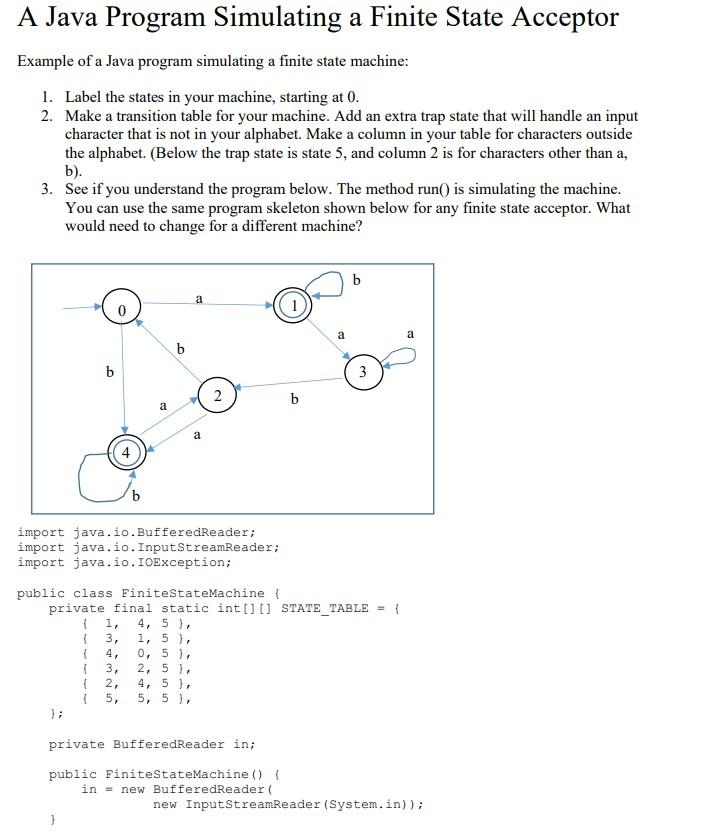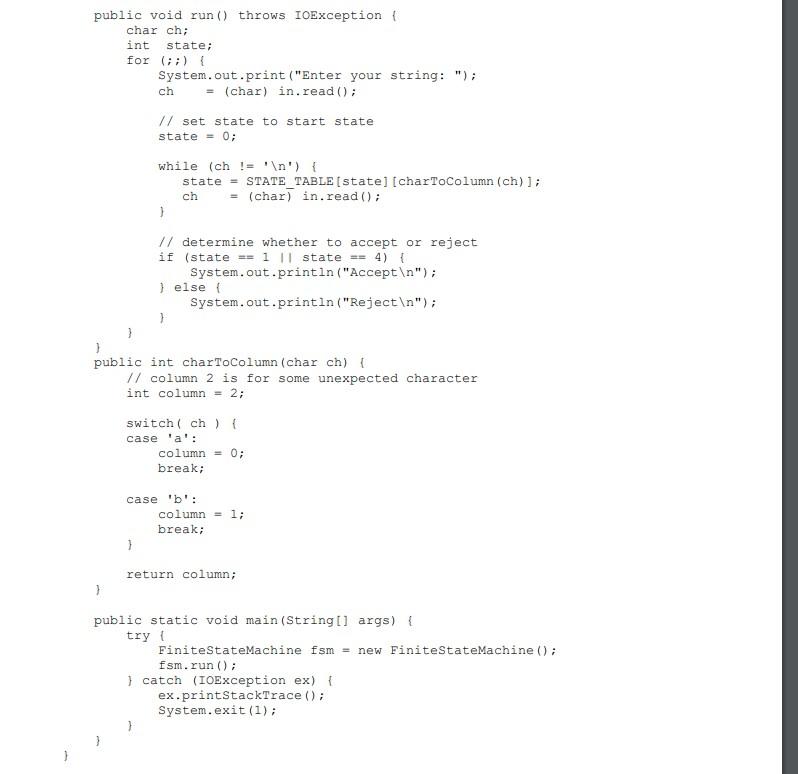Question
Simulating a DFA: Application 1 - Strings containing cbaa, bab, or cca Write a program that recognizes strings over the alphabet {a,b,c} that contain any
Simulating a DFA: Application 1 - Strings containing cbaa, bab, or cca
Write a program that recognizes strings over the alphabet {a,b,c} that contain any of the substrings cbaa, bab, or cca. Your program is supposed to act like a finite state machine, so it is restricted to the following rules:
Read only one character at a time. Do not store the characters in an array or a string variable. Your program must keep track of what it has seen (and what it still needs to see in order to have a good substring) as it goes along because it can only read a character once. It will do this by changing states.
As soon as your program detects the newline character that marks the end of one string, it must write either "Accept" or "Reject" to the screen (depending on whether the string just read is or is not in the language), then skip a line, then print "Your string> " and start processing the next string.
If the user types a string that contains any character other than a or b or c, your program should answer "Reject" to that string.
If the user presses "Enter" without typing any letters, that entry is to be considered the empty string and so your program should respond with "Reject".
Your program will continue to process strings until the user breaks into the program by forcibly ending the infinite loop (typing "Ctrl c" on student2), so your outermost loop can be an infinite loop.
Please use the template below and edit the code. Thanks!


Step by Step Solution
There are 3 Steps involved in it
Step: 1

Get Instant Access to Expert-Tailored Solutions
See step-by-step solutions with expert insights and AI powered tools for academic success
Step: 2

Step: 3

Ace Your Homework with AI
Get the answers you need in no time with our AI-driven, step-by-step assistance
Get Started


